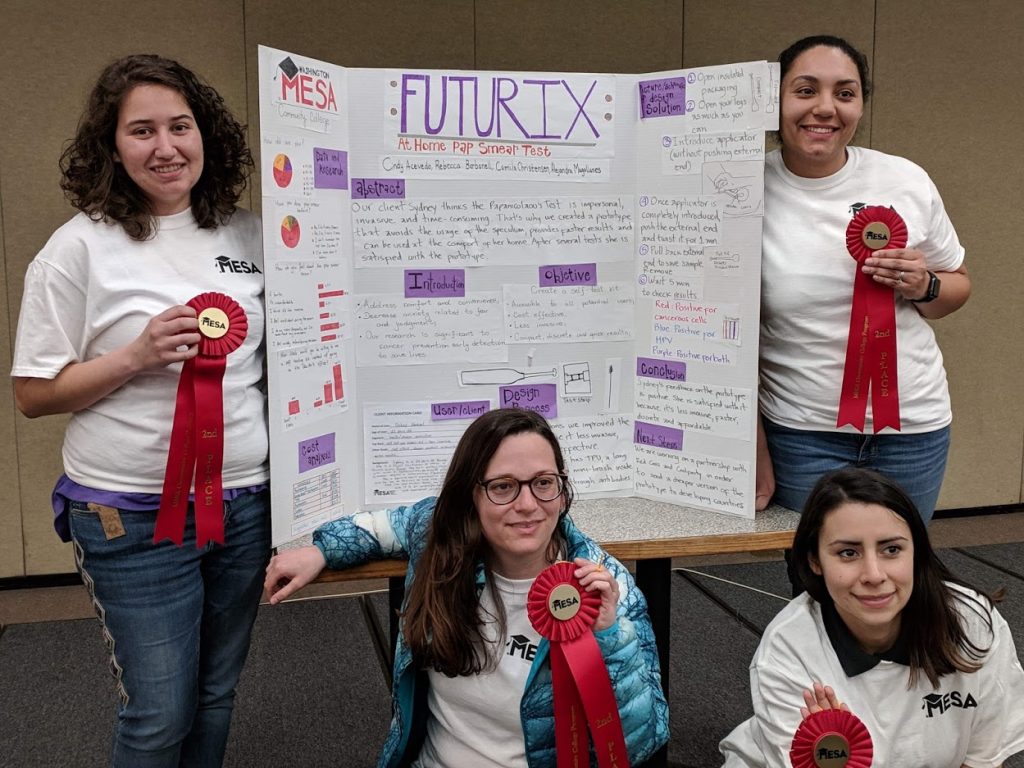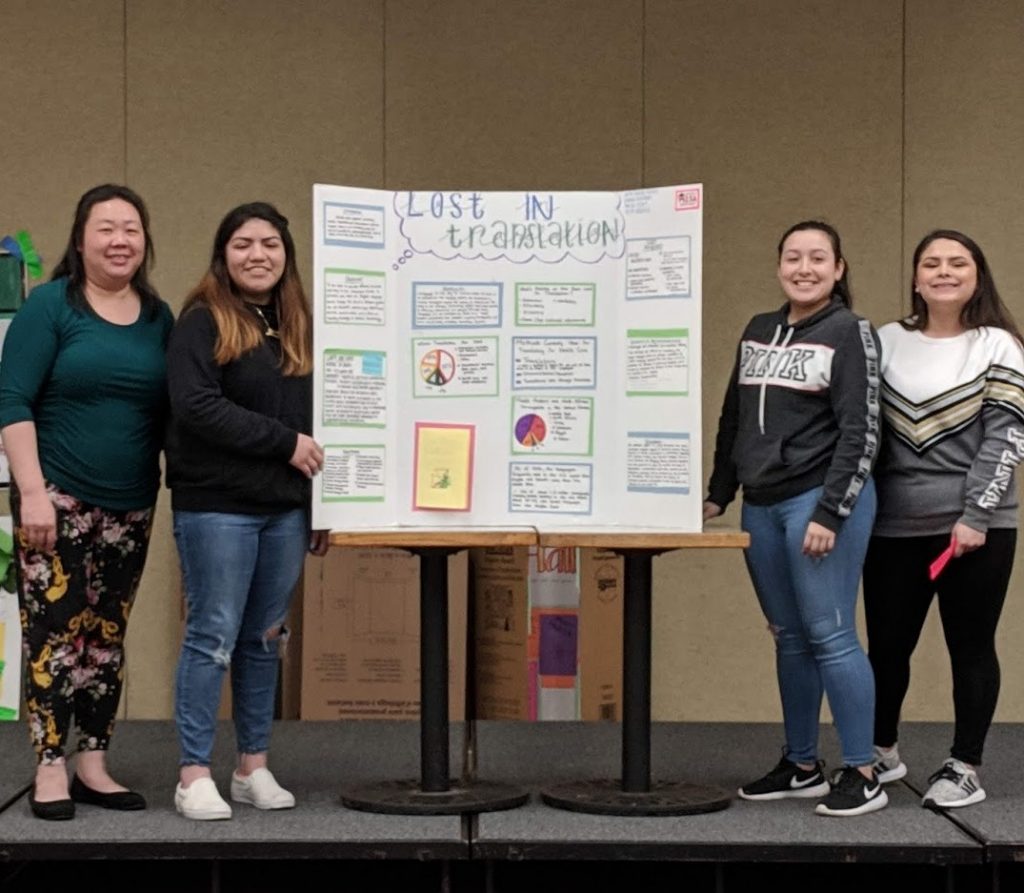Program helps encourage under-represented groups to participate in STEM fields

Clark’s MESA program is still in its first year, but already it’s providing new opportunities for student success.
MESA (Math, Engineering, Science Achievement) is a national program dedicated to encouraging under-represented populations to succeed in STEM fields. At Clark, this includes a dedicated space for studying and creating community, as well as opportunities for mentorship, assistance with books and fees, and conference participation.
This March, two Clark MESA students attended the MESA Student Leadership Retreat at Warm Beach Camp in Stanwood, Washington, along with students from 15 other MESA community college programs from Washington and California. Mai Lee Xiong and Alejandra Magallanes were able to participate in activities to boost their professional development and leadership skills.
They also participated in a competition for human-centered design solutions, breaking into groups to identify a problem, interview a potential user of their solution, and prepare a poster and oral presentation to explain it to others.

Xiong’s group focused on health care disparities that arise from language barriers between health care providers and patients whose first language is not English. They proposed the development of an app to translate medical information into different languages–one that would include medical terminology not available through tools like Google Translate. The project was a perfect fit for Xiong, who is studying biology and plans to pursue a degree natural medicine after her bachelor’s degree.
Alejandra Magallanes’s group also decided to tackle an issue related to healthcare: the availability and convenience of Pap smear exams to detect cervical cancer. They proposed a device that could be used at home to collect a sample of cervical cells. It could be used by people who have difficulty attending doctors’ appointments or who may avoid Pap smears because of the uncomfortable nature of the exam–and in doing so, could increase the number of people who receive preventative care. Magallanes’ group won second place in the competition, which includes proposals from more than 20 teams.
As with Xiong, Magallanes’s project aligned well with her interests; like Xiong, she is studying biology and plans to transfer to a university for her bachelor’s degree after graduating from Clark College in 2020.
“This experience really helped show the value of having the MESA program at Clark College,” said MESA director Dr. Ellen Harju. “It was wonderful to see these two students be able to work and succeed with their peers in an environment that allowed them to be their authentic selves. I’m excited to see more of our MESA students get the chance for these experiences.”
Clark’s MESA program is located in the STEM Building rooms 206/208 and is open Monday – Thursday 8:00 a.m. – 6:00 p.m., Friday: 9:00 a.m. – 5:00 p.m., Saturday: 10:00 a.m. – 2:00 p.m. More information about the program is available online at www.clark.edu/cc/mesa.
Photos: Clark College/Ellen Harju












